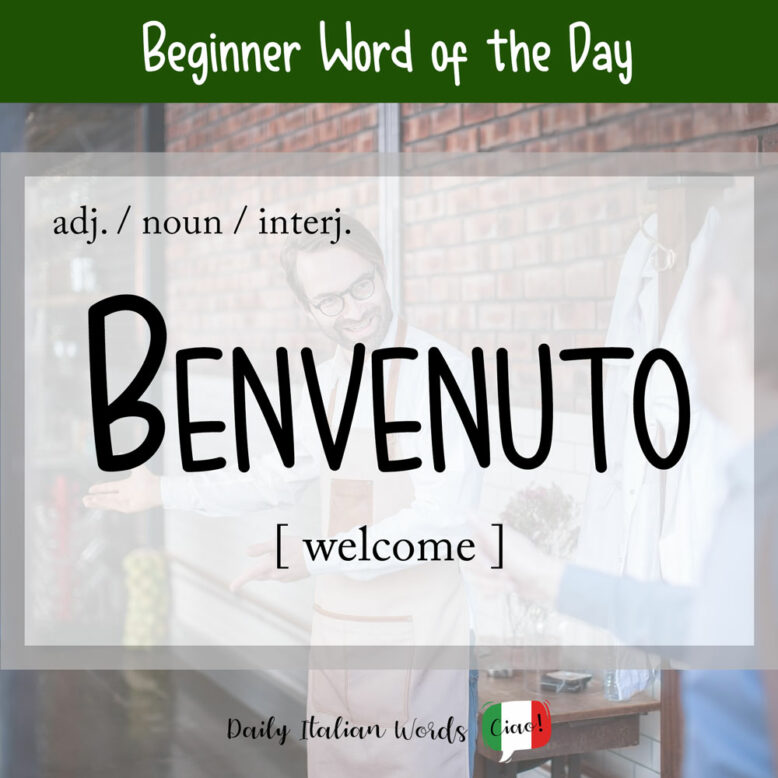The word welcome – as in the polite and friendly greeting you use upon someone’s arrival – can be translated as benvenuto in Italian.

The end of the word changes depending on whether you are addressing a man, woman or multiple men and women.
- benvenuto = one man
- benvenuta = one woman
- benvenuti = a group of men, or a mixed group of men and women
- benvenute = a group of women
Benvenuti alla mia festa!
Welcome to my party!

The same word can be used to describe a guest or new arrival who is welcome (or unwelcome if used in a negative sense). In this case, it must be preceded by the relevant article il / la / i / le.
Le persone sono scese in piazza contro il presidente, urlando che non era il benvenuto.
The people took to the streets against the president, shouting that he was not welcome.
It can also be used when referring to abstract concepts or things that are happily received.
Ogni opinione è benvenuta purché educata e non aggressiva.
Every opinion is welcome as long as it is polite and not aggressive.
The phrase dare il benvenuto means to welcome. It can be used to welcome various things such as the start of the New Year, a famous event such as the Olympics or the birth of a newborn baby.
Ho mandato un bigliettino per dare il benvenuto al piccolo Riccardo.
I sent a card to welcome little Riccardo (into the world).
A close synonym of benvenuto is benarrivato, which literally means well arrived. It isn’t used as frequently however, as it is quite formal.
Another useful word is bentornato (welcome back) which is used to express happiness at someone’s return.
Bentornata Carla, non pensavo di rivederti così presto!
Welcome back Carla, I didn’t expect to see you again so soon!
Important: In English, we use the expression you’re welcome as a polite response to thank you. In Italian, the correct response to grazie (thank you) is any of the following: prego, non c’è di che, di nulla, figurati (informal) or si figuri (formal). You would never use the word benvenuto in this sense.
Heather Broster is a graduate with honours in linguistics from the University of Western Ontario. She is an aspiring polyglot, proficient in English and Italian, as well as Japanese, Welsh, and French to varying degrees of fluency. Originally from Toronto, Heather has resided in various countries, notably Italy for a period of six years. Her primary focus lies in the fields of language acquisition, education, and bilingual instruction.


